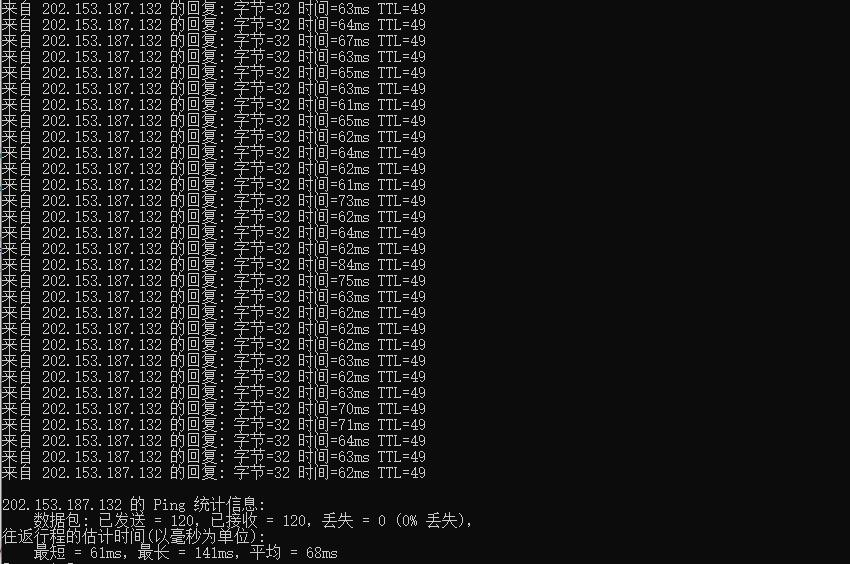pthread_create在ubuntu里面用C语言创建线程出错,请大家过来帮帮忙~
pthread_create 时间:2021-06-19 阅读:()
linux c编程中关于ptheread_create 的用法解释
<p>只是强制转换返回值类型.</p> <p>int?pthread_create(pthread_t?*tidp,const?pthread_attr_t?*attr,void?*(*start_rtn)(void),void?*arg)</p> <p>第三个参数接收一个函数的地址</p> <p>按普通变量地址应该这样调用</p> <p>pthread_create(&id1,NULL,(void*)(&mythread),NULL);</p> <p>注意取地址符&</p> <p>但是函数比较特殊, 函数名本来就代表了函数的入口地址。</p> <p>例如下面这段代码:</p>??#include?<stdio.h>? #include?<string.h>? #include?<stdlib.h>? ? void?test()? {? ? ? printf("test ");? }? ? int?main(int?argc,?char?*argv[])? {? ? ? printf("%p ",test);? ? ? printf("%p ",&test);? }<p>输出结果为:</p> <p>0x8048414 0x8048414</p> <p>可见,其实两者是一样的,都指向着这个函数的入口地址。
</p> <p>?</p> <p>所以可以直接不加&</p> <p>而前面的(void?*)只是函数传参数时的一个强制转换,是关于返回值类型的</p>
C++ pthread_create函数的第三个参数void* (*)(void*)老说匹配不上
pthread_create(&tid,NULL,A::repairFileThread,NULL); 线程方法必须是静态方法,你如果写在类里,不能是成员函数,需要加static 这意味着你不能在repairFileThread里访问A实例的成员,不过你可以通过参数传递A的实例 A?a; pthread_create(&tid,NULL,A::repairFileThread,a); ..... void?*?A::repairFileThread(void?*arg) { ??A*?a?=?(A*)arg; ??a->xxx... }pthread_create中的函数指针是怎么回事为什么是static去掉static行不行?
可以的。静态函数的概念。
加上static表示这个函数属于该类,而不是某个实例。
不加上static表示该函数是对象的成员函数。
pthread_create,传两个参数,在函数里面怎么设置?
涉及多参数传递给线程的,都需要使用结构体将参数封装后,将结构体指针传给线程 定义一个结构体 struct mypara { var para1;//参数1 var para2;//参数2 } 将这个结构体指针,作为void *形参的实际参数传递 struct mypara pstru; pthread_create(&ntid, NULL, thr_fn,& (pstru)); 函数中需要定义一个mypara类型的结构指针来引用这个参数 void *thr_fn(void *arg) { mypara *pstru; pstru = (* struct mypara) arg; pstru->para1;//参数1 pstru->para2;//参数2 }`pthread_create' 问题,请问下面这个报错怎么搞啊
pthread_create是UNIX环境创建线程函数; 1、头文件 #include因为pthread并非Linux系统的默认库
在ubuntu里面用C语言创建线程出错,请大家过来帮帮忙~
pthread_t pthread; if (pthread_create(&pthread,NULL,thread_recv,NULL)) { printf("线程创建成功 "); } 还有就是会不会是你编译的时候少了什么参数,后面记得加-lpthread
- pthread_create在ubuntu里面用C语言创建线程出错,请大家过来帮帮忙~相关文档
- pthread_createLinux下的线程库pthread库中的pthread_create()函数创建两个线程。
- pthread_createps命令下pthread_create的fork的区别
腾讯云轻量应用服务器关于多个实例套餐带宽
腾讯云轻量应用服务器又要免费升级配置了,之前已经免费升级过一次了(腾讯云轻量应用服务器套餐配置升级 轻量老用户专享免费升配!),这次在上次的基础上再次升级。也许这就是良心云吧,名不虚传。腾讯云怎么样?腾讯云好不好。腾讯云轻量应用服务器 Lighthouse 是一种易于使用和管理、适合承载轻量级业务负载的云服务器,能帮助个人和企业在云端快速构建网站、博客、电商、论坛等各类应用以及开发测试环境,并提供...

美国云服务器 2核4G限量 24元/月 香港云服务器 2核4G限量 24元/月 妮妮云
妮妮云的来历妮妮云是 789 陈总 张总 三方共同投资建立的网站 本着“良心 便宜 稳定”的初衷 为小白用户避免被坑妮妮云的市场定位妮妮云主要代理市场稳定速度的云服务器产品,避免新手购买云服务器的时候众多商家不知道如何选择,妮妮云就帮你选择好了产品,无需承担购买风险,不用担心出现被跑路 被诈骗的情况。妮妮云的售后保证妮妮云退款 通过于合作商的友好协商,云服务器提供2天内全额退款到网站余额,超过2天...

酷番云78元台湾精品CN2 2核 1G 60G SSD硬盘
酷番云怎么样?酷番云就不讲太多了,介绍过很多次,老牌商家完事,最近有不少小伙伴,一直问我台湾VPS,比较难找好的商家,台湾VPS本来就比较少,也介绍了不少商家,线路都不是很好,有些需求支持Windows是比较少的,这里我们就给大家测评下 酷番云的台湾VPS,支持多个版本Linux和Windows操作系统,提供了CN2线路,并且还是原生IP,更惊喜的是提供的是无限流量。有需求的可以试试。可以看到回程...

pthread_create为你推荐
-
阶乘符号1~10的阶乘(!)分别是多少?全局钩子求助:全局钩子是怎么回事啊?下载的游戏为什么会安装钩子?求大神帮助特斯拉model3降价特斯拉股价为何暴跌?多看论坛kindle哪个型号最好用彩信平台请问彩信平台升级怎么改参数能告诉我具体步骤吗?彩信平台目前国内有哪些短信平台服务商,怎么排名?怎样删除聊天记录自己已发出的微信聊天记录怎样删除才不会让对方看见云家政网腾讯网的网址是多少?微盟价格微盟怎么收费?flushesno-show rate是什么